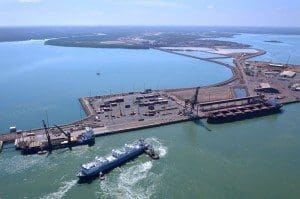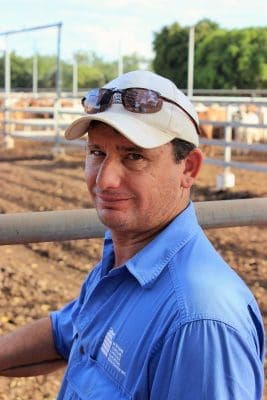CATTLE exports from northern Australia have fallen by 25 percent compared to last year, latest port data from January to the end of April shows.
Australia’s main northern ports exported 184,000 cattle from January 1 to April 30.
A total of 91,140 head were shipped from Darwin, 81,807 from Townsville, 8050 from Broome and 2921 from Wyndham. As usually happens during the northern wet season, many of the cattle exported from Darwin were sourced from Queensland.
Eighty percent of cattle shipments have gone to Indonesia, and 16pc to Vietnam.
The entire volume for the first four months of the year was down by 66,000 head on the 250,000 head exported in the corresponding period of last year.
Contributing to the slowdown have been several factors including:
- new Indonesian rules requiring one breeding animal to be imported with every five feeder animals (the uncertainty created by the introduction of these rules saw the entire trade grind to a halt in October and November last year);
- Prolonged limited access to northern stock caused by one of the wettest northern wet seasons on record; and
- The combination of high Australian cattle purchase prices and cheap frozen Indian buffalo beef, which is negatively impacting on the profitability of Indonesian cattle importers and lot feeders in the current environment.
How cattle export activity continues for the remainder of the year is likely to be determined largely by the price of Australian cattle.
Prices usually ease at this time of year as northern paddocks dry out and first round musters bring a flush of new season supply to the market.
The skies above the territory are now abuzz with mustering choppers and most roads are now open.
However, despite the new season influx of supply, shipping activity remains subdued, with only three ships scheduled to load across northern ports in the next week (two in Darwin and one in Broome).
Northern Territory Livestock Exporters’ Association chief executive officer Stuart Kemp told Beef Central cattle prices will be key determinant of cattle shipping activity in coming months.
“If the price comes back and the Indonesians are tempted to trade, there is an opportunity to shift a power of cattle, but they will only do it at the right price,” Mr Kemp said.
“They are still under tremendous pressure to reduce the price at the sell end.”
Earlier this year the Indonesian Government announced it will increase the weight limit on imported cattle from 350kg to 450kg, a measured aimed at increasing the supply of beef in the country.
However, an existing Indonesian law requiring imported cattle to be fed for a minimum of 120 days was not removed, which has largely negated the intended benefits of the increased weight limit.
Feeding heavy cattle for a minimum of four months pushes them to weights well above what wet market butchers want, which has stifled demand for heavier cattle under the new rules.
Mr Kemp said some heavier cattle were being imported, “but not a lot”.
Limited numbers of cattle 370kg to 420kg weight range were moving, but were also selling at lower prices of 280-290c/kg liveweight.
One exporter told Beef Central that importers are warning they will impose penalties of 20c/kg for cattle delivered at weights of over 380kg, because of the discounts they believe the 120 day feeding rule will receive from customers for the heavier finished product.
Prices for feeder steers (under 350kg) ex-Darwin have been easing in recent weeks as increased supply becomes available.
Quotes Beef Central has received over the past few days have varied from 340c/kg down to 320c/kg.
Twelve months ago feeder steers dipped briefly to 275-280c/kg before climbing back into the 300c/kg range, which makes the current quotes about 40–50c/kg higher than the same time last year.
Despite the subdued export activity of recent months, many importers are said to be still carrying too much inventory compared to current sales demand, and are waiting to see how the critical sales period of Ramadan in June progresses before reassessing orders.


